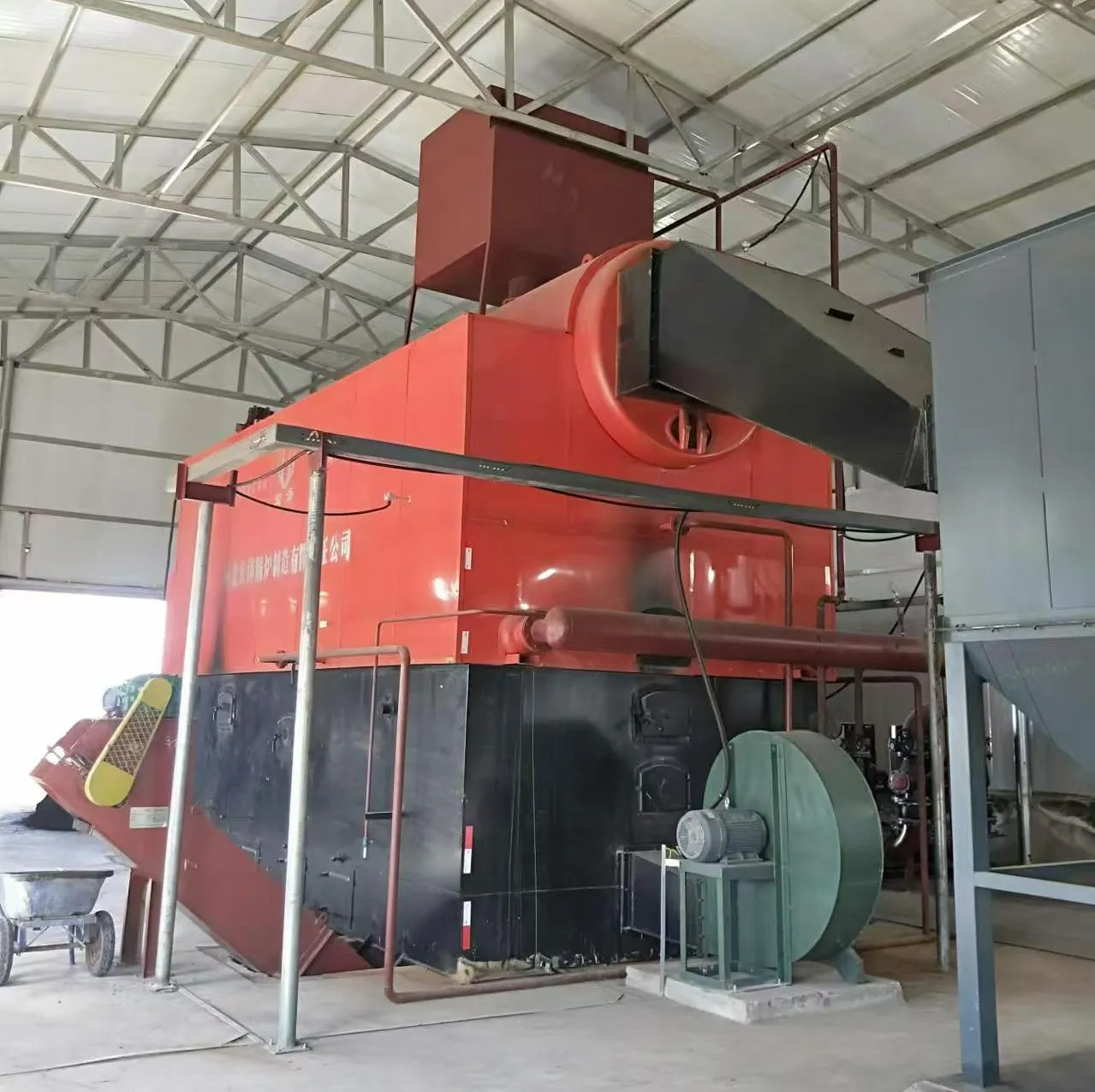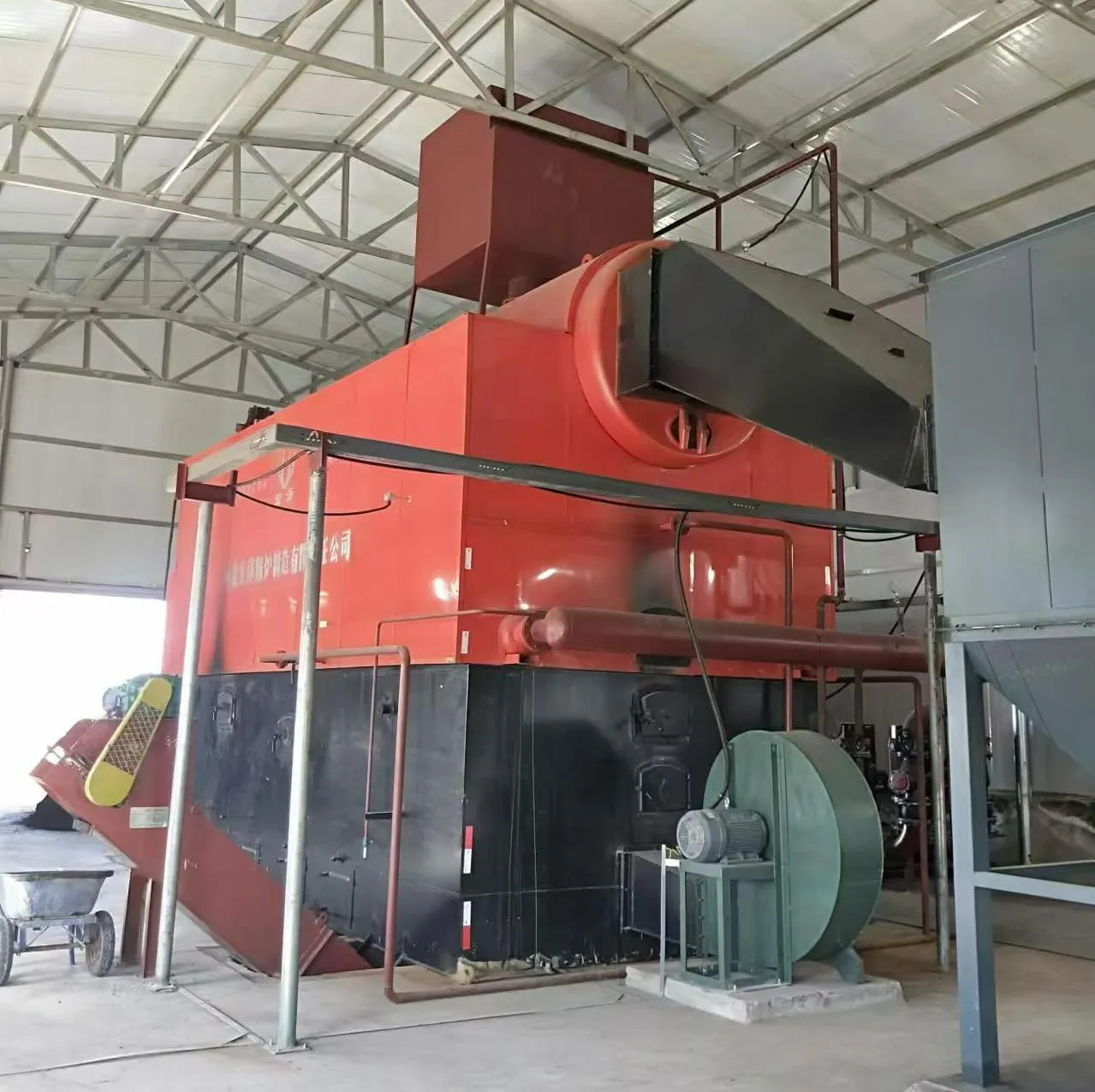
Jul . 21, 2025 12:01 Back to list
Reliable Biomass Thermal Oil Boiler Manufacturers
🏭Manufacturer: HEBEI HONGZE BOILER MANUFACTURING CO., LTD.
🌐Website: https://www.hzsteamboiler.com
📧Email: info@hbhongze.com
📱Phone: +8615833999209
📍Address: No.2 Suheng North Street, Raoyang County, Hengshui City, Hebei Province, China
The global energy landscape is shifting toward sustainable solutions, and biomass fired thermal oil boiler technology represents a significant advancement in industrial heating systems. These boilers provide efficient thermal energy transfer while utilizing renewable biomass resources. This comprehensive guide explores technical specifications, industry trends, applications, and innovations in biomass fired thermal oil boiler systems as we approach 2025. As one of the leading biomass fired thermal oil boiler manufacturers, HEBEI HONGZE BOILER leverages cutting-edge technology to deliver solutions that address both energy efficiency and environmental concerns.
Industry Trends and Market Outlook
The global market for biomass fired thermal oil boilers is experiencing robust growth, projected to expand at a CAGR of 6.8% through 2028 according to Global Market Insights. Key trends include:
- Increased regulatory support: Government policies like the EU Renewable Energy Directive III are driving adoption by promoting carbon-neutral energy sources
- Technological innovations: Advanced combustion control systems improving thermal efficiency to 90%+
- Biomass supply chain development: Enhanced infrastructure for agro-industrial waste collection and processing
- Hybridization solutions: Integration with solar thermal systems to optimize energy use
- Digital integration: IoT-enabled monitoring and AI-driven predictive maintenance capabilities
Leading biomass fired thermal oil boiler manufacturers are responding to these trends with modular designs that reduce installation costs by approximately 25% compared to traditional systems while enhancing automation capabilities. The flexibility in fuel options—from wood chips to agricultural residues—provides resilience against price fluctuations in conventional energy markets.
Technical Specifications of Biomass Fired Thermal Oil Boilers
Modern biomass fired thermal oil boilers are engineered for maximum energy efficiency and operational reliability. The working principle involves three key stages:
- Combustion: Biomass fuel is gasified in the furnace at temperatures reaching 900-1100°C
- Heat Transfer: Thermal energy is transferred to heat-conductive oil in a closed-loop system
- Circulation: High-pressure pumps circulate heated thermal oil to point-of-use equipment
Key Technical Note: Unlike steam systems, thermal oil boilers operate at atmospheric pressure despite high temperatures, significantly reducing system stress and safety requirements while maintaining operational efficiency.


| Parameter | Specification | Notes |
|---|---|---|
| Thermal Power Range | 30-1400 (10⁴Kcal/h) | Modular designs allow for scaling |
| Working Pressure | 0.8-1.0 MPa | Lower pressure than steam systems |
| Outlet Temperature | Up to 320°C | Precisely controllable ±2°C |
| Thermal Efficiency | 85%-90% | Varies by fuel quality |
| Applicable Fuels | Lignite, bituminous coal, anthracite, gangue | Fuel flexibility reduces operational costs |
| NOx Emissions | Meets EU EcoDesign standards | |
| System Lifespan | 15-20 years | With proper maintenance |
Performance Analysis and Comparisons
The operational efficiency of biomass fired thermal oil boilers depends significantly on several variables including fuel moisture content (optimal at 15-25%), combustion air ratio (typically 1.2-1.4), and thermal oil flow velocity (recommended 1.5-3.0 m/s). As one of the premier biomass fired thermal oil boiler manufacturers, HEBEI HONGZE BOILER incorporates real-time optimization algorithms that adjust these parameters continuously during operation.
Industrial Applications & Implementation Cases
Biomass fired thermal oil boilers have proven invaluable across multiple industries that require precise temperature control and sustainable heat sources:
- Chemical Processing: Used in polymerization reactors requiring constant 250-300°C temperatures
- Food & Beverage: Provides indirect heating for edible oil refining and cooking processes
- Textile Industry: Temperature control in dyeing and finishing operations
- Pharmaceutical: Sterilization and synthesis processes requiring contamination-free heating
- Building Materials: Asphalt heating and concrete curing applications
Implementation Insight: A textile manufacturer in India implemented HONGZE's 2.5 MW biomass fired thermal oil boiler in 2022, reducing thermal energy costs by 45% and CO2 emissions by 320 tons annually while improving temperature stability in dyeing processes.
Operational Economics
The payback period for biomass fired thermal oil boilers typically ranges from 3-5 years depending on local fuel costs and tax incentives. With biomass fuel costs approximately 30-60% less than natural gas in most markets, and tax benefits under renewable energy schemes, these systems represent a financially viable path toward sustainable industrial heating. Leading biomass fired thermal oil boiler manufacturers offer customized financial modeling to accurately project ROI scenarios.
Technical FAQ: Biomass Thermal Oil Boiler Systems
Combustion chambers utilize SA387 high-chrome steel alloys (10-12% Cr content) capable of withstanding sustained temperatures above 950°C with minimal oxidation. Heat exchange surfaces feature seamless steel tubes (ASTM A106 Grade B) meeting ASME Section I requirements. Advanced installations may include ceramic fiber lining in critical sections to extend component life.
Comprehensive safety measures include triple-redundant temperature sensors (±0.5% accuracy), pressure relief valves set to 110% operating pressure, low-flow protection switches (critical at velocities below 1.2 m/s), automatic nitrogen blanketing systems, and flame-out detection with automatic fuel cutoff (
Multi-stage solutions include primary measures (low-NOx burners with controlled air staging) reducing NOx by 40-60%, cyclone separators for particulate control (removing 85% of PM2.5+), and optional secondary treatments such as SNCR systems achieving
Closed-loop control systems continuously monitor exhaust gas composition (±1% O2 accuracy), thermal oil temperature (±1°C), and flue gas temperature to optimize combustion efficiency. Intelligent controls modulate air intake dampers, fuel feed rates, and circulation pump speeds to maintain 85-90% efficiency across varying loads (±15% deviation). Machine learning algorithms optimize fuel/air ratios based on weather data and biomass moisture content.
Installation requires 15-25% more space than equivalent steam boilers to accommodate thermal oil expansion tanks. Proper pump selection (considering viscosity at operating temperatures) and pipe expansion compensation are vital. Control room integration requires Category 3 (SIL 2) safety systems according to IEC 61511 standards. Foundation load calculations should accommodate wet scrubber weight if retrofitted.
Quarterly thermal oil testing (measuring viscosity, flash point, acid number) is essential with oil replacement every 15,000-20,000 hours. Daily inspections should include burner viewports, pressure differentials across filters, and circulation pump seals. Annual maintenance involves firetube deslagging, refractory inspection, and heat exchanger surface cleaning to maintain optimal heat transfer coefficients.
Higher density fuels (wood pellets: >700kg/m³) yield combustion stability and 88-90% efficiency. Agricultural residues with 15-25% moisture achieve 85-87% efficiency. Critical parameters include ash fusion temperature (>1100°C recommended to prevent slagging) and alkali index (
Environmental Benefits and Sustainability Analysis
Modern biomass fired thermal oil boilers deliver significant ecological advantages over fossil-fuel alternatives:
- Carbon Neutrality: CO2 emissions are offset by biomass regrowth carbon sequestration cycles according to IPCC carbon accounting guidelines
- Waste Reduction: Utilization of agricultural residues prevents landfill disposal and methane emissions
- Resource Efficiency: Water consumption reduced by 95% compared to steam boiler equivalents
- Air Quality: Advanced filtration systems capture 99.5% of particulate emissions
Environmental Validation: Life Cycle Assessment studies published in Energy Conversion and Management Journal (2021) document carbon intensity of biomass fired thermal oil boiler systems at 18g CO2/MJ vs. 82g CO2/MJ for natural gas alternatives.
Industry References & Technical Resources
- "Advances in biomass thermal oil heating systems" - Applied Thermal Engineering
- Biomass Thermal Conversion Technologies (IEA Bioenergy Report 2023)
- ASME Boiler and Pressure Vessel Code, Section I Requirements
- EU Horizon 2020 Report: Thermal Performance Enhancement of Biomass Systems
- U.S. DOE Biomass R&D: High-Temperature Heat Transfer Systems
- BS EN 12953-7: Shell Boiler Standards
- World Bioenergy Association: Global Biomass Statistics 2023
Innovation at HEBEI HONGZE BOILER
As specialized biomass fired thermal oil boiler manufacturers, HEBEI HONGZE develops cutting-edge solutions that address industry challenges:
- Adaptive Combustion Technology (ACT): AI-powered combustion optimization achieving over 92% thermal efficiency
- Multifuel Capability: Automatic adjustment for biomass fuel variations with up to 35% moisture tolerance
- Modular Expansion Design: Additive capacity installation without operational downtime
- Remote Diagnostics Platform: IoT-enabled predictive maintenance reducing downtime by up to 65%
- Eco-Enhanced Models: Integrated SCR denitrification systems achieving emissions below 100mg/Nm³
Our R&D facility includes a fully equipped test station certified by TÜV Rheinland, validating system performance to international standards before deployment. HONGZE boilers consistently meet CE, ASME, IBR, and TRD compliance requirements.
Explore Our Biomass Thermal Oil Boiler Solutions
Discover how our ASME-certified boilers can deliver reliable, sustainable heating solutions for your industrial processes. With thermal power ranging from 30-1400 (10⁴Kcal/h) and operational pressures up to 1.0 MPa, we provide customized systems that maximize energy efficiency while reducing environmental impact.
Request Technical SpecificationsContact our engineering team today:
info@hbhongze.com | +8615833999209
-
Comprehensive Guide to Steam Boiler Installation Diagram – Global Best Practices and Future Trends
NewsNov.24,2025
-
A Practical Guide to the Selection of Steam Boiler for Industrial Efficiency
NewsNov.23,2025
-
Comprehensive Guide to Steam Boiler PDF Manuals and Their Global Impact
NewsNov.22,2025
-
Discover How Steam Boiler Videos Improve Industrial Training & Safety
NewsNov.22,2025
-
Comprehensive Guide to Wood Fired Steam Boiler Design – Efficiency, Applications, and Innovations
NewsNov.21,2025
-
Comprehensive Guide to Steam Boiler Working – Efficiency & Applications
NewsNov.20,2025
Related PRODUCTS






















